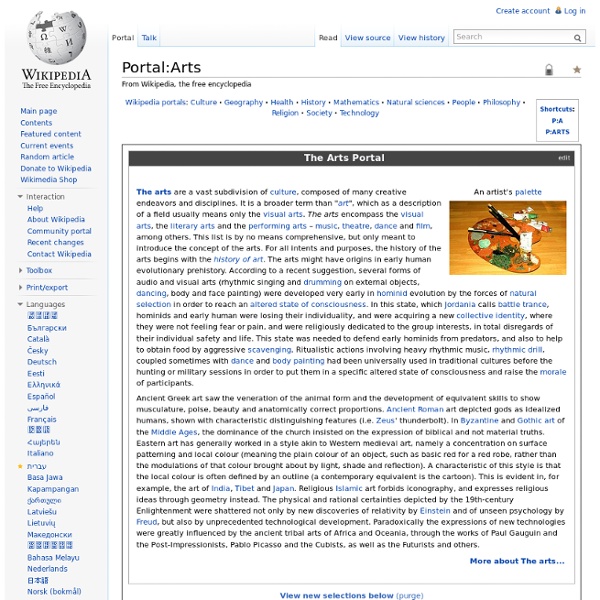



Portal:Science edit The Science Portal Science is formed from methodical study of nature stemming from testable explanations and predictions. An older and closely related current meaning emerged from Aristotle, whereby "science" referred to the body of reliable knowledge that is logically and rationally explained (see "History and etymology" section below). Since classical antiquity, science as knowledge was closely linked to philosophy. In the early modern era the two words, "science" and "philosophy", were sometimes used interchangeably in the English language. Ever-evolving, "science" is, more modernly, a term referring to the pursuit of knowledge, and not the knowledge itself. Currently, there are both hard (e.g, biological psychology) and soft science (e.g., social psychology) fields within the discipline. Cite error: There are <ref> tags on this page, but the references will not show without a {{reflist}} template (see the help page).
the free encyclopedia Belief Belief is a mental representation, treated in various academic disciplines, especially philosophy and psychology, of a sentient being's attitude toward the likelihood or truth of something.[1] From Greek two different concepts are often represented by the concept of belief: Pistis and Doxa. Simplified we may say that the first deals in trust and confidence, the latter in opinion and acceptance. Knowledge and epistemology[edit] The terms belief and knowledge are used differently in philosophy. As a psychological phenomenon[edit] Mainstream psychology and related disciplines have traditionally treated belief as if it were the simplest form of mental representation and therefore one of the building blocks of conscious thought. The concept of belief presumes a subject (the believer) and an object of belief (the proposition). This has important implications for understanding the neuropsychology and neuroscience of belief. Belief-in[edit] Belief-that, delusion[edit] Formation[edit] Desirability